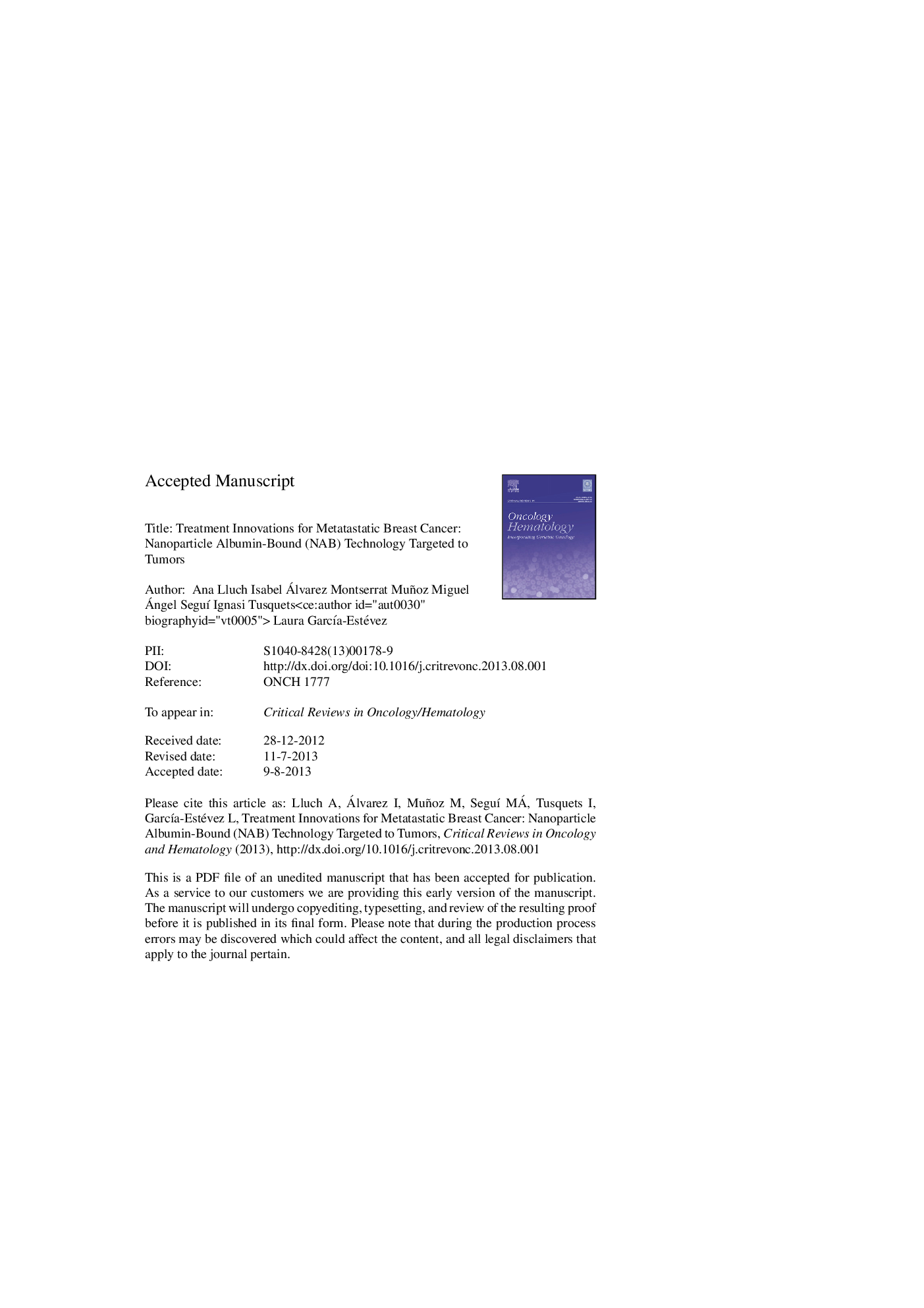| Article ID | Journal | Published Year | Pages | File Type |
|---|---|---|---|---|
| 6113664 | Critical Reviews in Oncology/Hematology | 2014 | 33 Pages |
Abstract
In spite of recent advances in the treatment of metastatic breast cancer, this disease remains essentially incurable. Anthracyclines and taxanes have been widely demonstrated to be the most active cytotoxic drugs for the treatment of breast cancer. Paclitaxel and docetaxel are both hydrophobic drugs that need to be administered with detergent-like substances as solvents. In contrast, nanoparticle albumin-bound (nab) paclitaxel uses the natural characteristics of albumin to reversibly bind paclitaxel, transport it across endothelial cells and concentrate the active ingredient within the tumor. Several trials have demonstrated that nab-paclitaxel results in superior efficacy, with more complete responses, prolonged time to recurrence and survival, than paclitaxel and docetaxel in MBC. As second-line treatment, the novel formulation has almost doubled overall response rate, increased time to progression and overall survival in comparison with paclitaxel. Due to these results, to date nab-paclitaxel stands out as a promising treatment of metastatic breast cancer.
Related Topics
Health Sciences
Medicine and Dentistry
Hematology
Authors
Ana Lluch, Isabel Álvarez, Montserrat Muñoz, Miguel Ángel SeguÃ, Ignasi Tusquets, Laura GarcÃa-Estévez,
